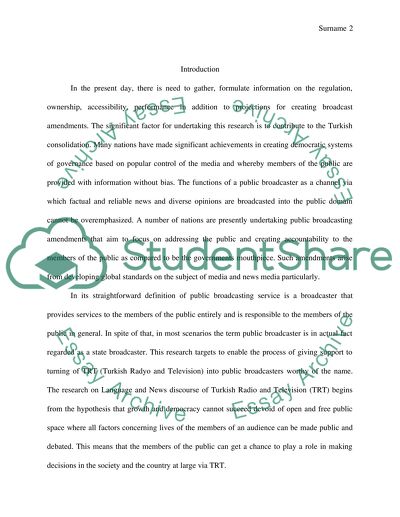Cite this document
(“Language and News discourse of Turkish Radio and Television(TRT) Research Paper”, n.d.)
Retrieved from https://studentshare.org/journalism-communication/1491436-language-and-news-discourse-of-turkish-radio-and
Retrieved from https://studentshare.org/journalism-communication/1491436-language-and-news-discourse-of-turkish-radio-and
(Language and News Discourse of Turkish Radio and Television(TRT) Research Paper)
https://studentshare.org/journalism-communication/1491436-language-and-news-discourse-of-turkish-radio-and.
https://studentshare.org/journalism-communication/1491436-language-and-news-discourse-of-turkish-radio-and.
“Language and News Discourse of Turkish Radio and Television(TRT) Research Paper”, n.d. https://studentshare.org/journalism-communication/1491436-language-and-news-discourse-of-turkish-radio-and.


